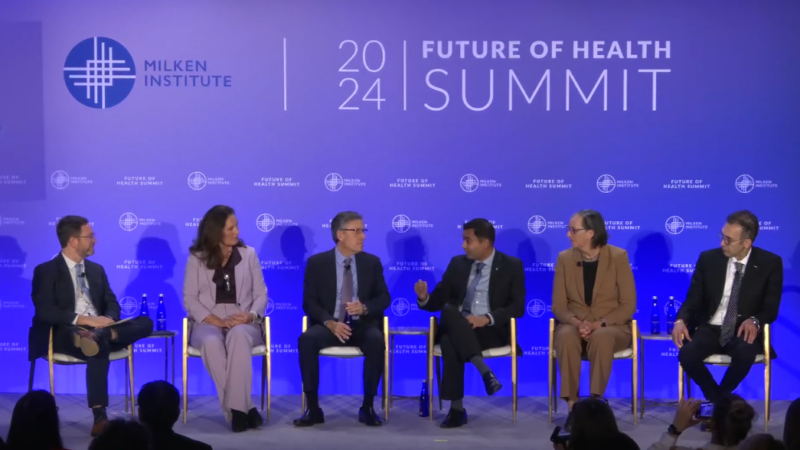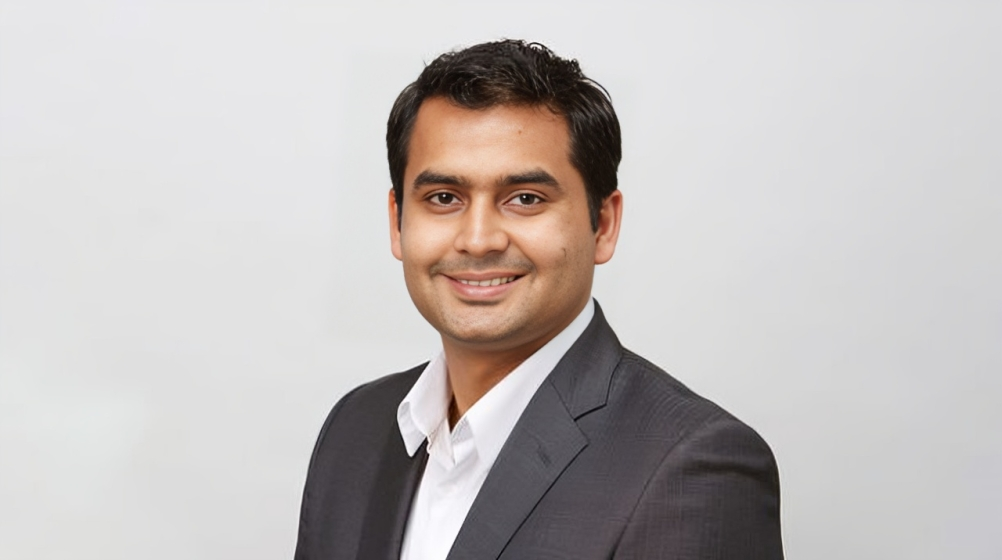Mohit Manrao, SVP and Head of US Oncology at AstraZeneca, shared a post on LinkedIn:
“Yesterday top lawmakers, government officials and public health experts and business leaders gathered in DC at the Milken Institute’s ‘Future of Health Summit’ to address the most significant health challenges.
I was fortunate enough to participate in a panel with Karen Knudsen, Kimryn Rathmell, Harlan Levine and AmirAli Talasaz. Our discussion moderated by Dylan Scott at Vox discussed the alarming rise in cancer among younger adults that we’ve been seeing over the past few years.
It was a very powerful and engaging conversation, a few things stood out to me in particular that I wanted to share here since change can only happen when we take collective action.
Why Younger People Are Getting Cancer and What We Can Do About It.
Top takeaways:
Take control of your risk factors
While we may not have all the answers to why cancer rates are rising in young adults, we know that there are proactive steps we can each take to safeguard ourselves against cancer and improve our quality of life.
According to the American Cancer Society, in the United States for 2023, an estimated 45% of the 609,820 cancer deaths are expected to be linked to potentially modifiable risk factors, meaning lifestyle changes could potentially help preventing these deaths.
Move. By incorporating physical activity into daily routines, young people can enhance their energy levels, improve their mood, and build a strong foundation for long-term health.
Eat right. By making mindful food choices, young people can fuel their bodies properly, maintain a healthy weight, and promote long-term well-being.
Don’t smoke. Avoiding smoking is one of the most important steps young people can take to protect their health.
Harness the power of science for prevention, screening and treatment
This journey begins with prevention, where scientific advancements can help identify risk factors and promote healthy lifestyles to reduce the incidences of cancer. Early detection through advanced screening technologies allows for the identification of cancer at its most treatable stages, significantly improving patient outcomes.
Finally, innovative treatments, including targeted therapies and immunotherapies, offer new hope for patients by effectively combating cancer cells while minimizing side effects.
We are indeed in a golden era of oncology, where scientific breakthroughs are transforming the way we prevent, detect, and treat cancer, ultimately bringing us closer to AstraZeneca’s goal to eliminate this disease as a cause of death.
Reach underserved communities
While examining the increased trends in cancer rates and access to cancer screenings, one cannot ignore racial disparities. Black women are 40% more likely to die of breast cancer than white women and are twice as likely to die if they are younger than 50. Additionally, Black men have the highest overall cancer death rate, which is 19% higher than that of White men.
According to the Prevent Cancer Foundation, 65% of Americans 21 and older are not up to date on at least one routine cancer screening, and these rates are even lower in underserved populations. We must do better to drive awareness and understanding of the importance of cancer screenings across all populations.
The earlier we detect cancer, the earlier we treat it, and the better the outcomes. By utilizing advanced technologies and data analytics, we can identify at-risk groups, tailor outreach efforts, and ensure that everyone has access to life-saving screenings and treatments.
Focus on different types of supportive care
Supportive care is crucial for young people diagnosed with cancer, as they face unique challenges that differ from those of older adults. This care encompasses a range of services designed to address the physical, emotional, and social needs of young cancer patients.
As Karen Knudsen said in a recent Wall Street Journal article, ‘We are facing a survivor tsunami that we are not ready for.’ By providing tailored support, we can ensure that young cancer patients receive the holistic care they need during and after their treatment journey.
In conclusion, addressing the rising trend of cancer rates rising in young adults requires a multifaceted approach. As we continue to harness the power of science for prevention, screening, and treatment, we move closer to a future where cancer is no longer a leading cause of death.
Together, through collective action and innovation, we can make significant strides in the fight against cancer and ensure equitable healthcare for all.”

More posts featuring Mohit Manrao.
Mohit Manrao is the SVP and Head of US Oncology at AstraZeneca and President of the AstraZeneca Foundation, where he leads community grant programs. As Executive Sponsor of AstraZeneca’s US Health Equity Initiative, he focuses on reducing healthcare disparities. He also serves as a Board Member of the National Pharmaceutical Council.


